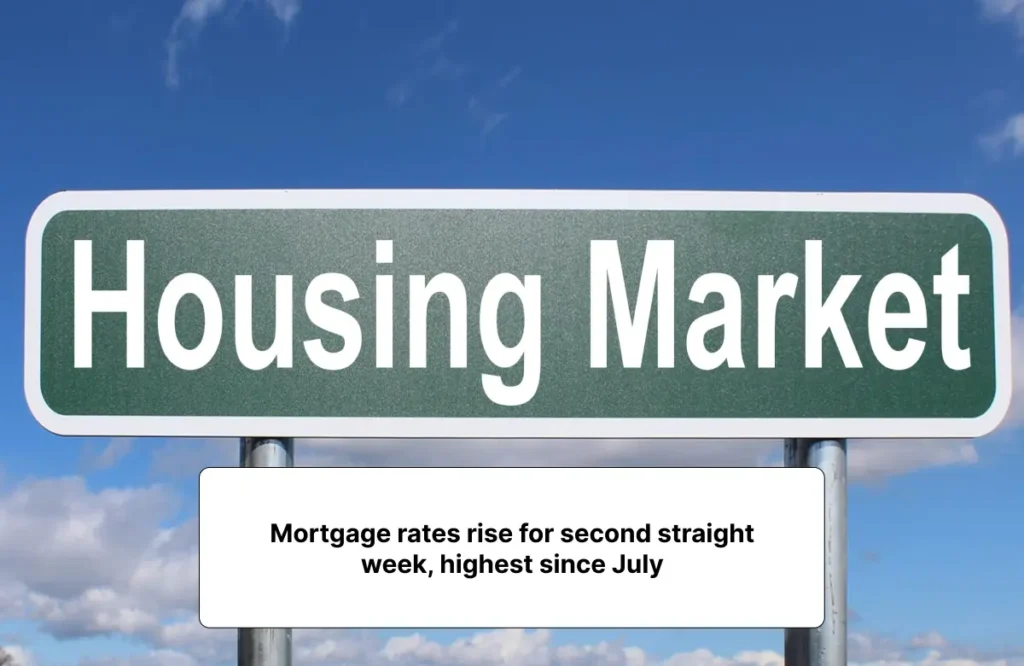Mortgage rates have been making headlines recently. They’ve risen for the second week in a row. This is the highest they’ve been in five months. What does this mean for you as a homeowner or potential buyer? Let’s break it down in simple terms.
Freddie Mac released its latest data. The average rate for a 30-year fixed mortgage is now 6.85%. This is up from 6.72% last week. A year ago, it was 6.61%. This rise is significant. It impacts affordability for many.
This week’s rate is the highest since mid-July. Back then, it was 6.89%. The lowest rate this year was 6.08% in late September. The highest point this year was 7.22% in early May. These fluctuations can make planning tricky.
Why Are Mortgage Rates Rising?
Several factors influence mortgage rates. The economy plays a big role. Inflation and the Federal Reserve’s policies are also key. These things can be complex. But they directly affect your borrowing power.
Sam Khater, Freddie Mac’s chief economist, shared some insights. He noted a slight improvement in home sales. However, there’s still a shortage of available homes. A strong economy could help in the new year. It might also boost home buying activity.
The 15-year fixed mortgage rate also increased. It climbed to 5.92% from 5.84% last week. A year ago, this rate was 5.95%. Both 30-year and 15-year rates are important to watch.
What Does This Mean for Homebuyers?
Rising mortgage rates directly affect affordability. Higher rates mean higher monthly payments. This can make it harder to qualify for a mortgage. It also reduces your purchasing power. You might need to consider a less expensive home.
Also Read: Dreaming of a Billion Dollar Holiday? Here’s Your Shot at the Mega Millions Jackpot!
If you’re planning to buy a home, consider your budget carefully. Factor in the current mortgage rates. Use a mortgage calculator to estimate your payments. This will help you understand the financial commitment.
Rising rates might make you feel discouraged. But don’t lose hope. There are still options available. You could consider adjusting your budget. You might also explore different loan programs.
What Does This Mean for Homeowners?
If you already own a home, rising rates might not directly affect your current mortgage. However, they could impact your ability to refinance. Refinancing might not be as attractive with higher rates.
If you’re considering selling your home, higher rates could affect buyer demand. Fewer buyers might be able to afford higher payments. This could potentially slow down the market.
It’s important to stay informed about market trends. This will help you make informed decisions. Keep track of mortgage rate changes. This will allow you to make smart financial choices.
Navigating the Current Mortgage Market
The current mortgage market can feel uncertain. But there are ways to navigate it successfully. Working with a qualified mortgage lender is crucial. They can help you understand your options.
A lender can help you pre-qualify for a mortgage. This gives you an idea of how much you can borrow. They can also explain different loan types. This helps you choose the best option for your situation.
It’s also important to improve your credit score. A higher credit score can help you secure a lower interest rate. This can save you money over the life of your loan.
What to Expect
Predicting future mortgage rates is challenging. Many factors influence their movement. It’s important to stay informed and adapt to changes. Consulting with a financial advisor can provide valuable insights.
While rising rates can be concerning, they are a normal part of the economic cycle. The market will continue to evolve. Staying informed allows you to make strategic decisions.
In conclusion, mortgage rates have risen recently. This impacts both homebuyers and homeowners. Understanding these changes is crucial. It allows you to make informed financial decisions. Stay informed, consult with professionals, and navigate the market with confidence. Remember to plan carefully and consider all your options in this changing financial landscape.









1 thought on “Mortgage Rates Rise: What This Means for You”